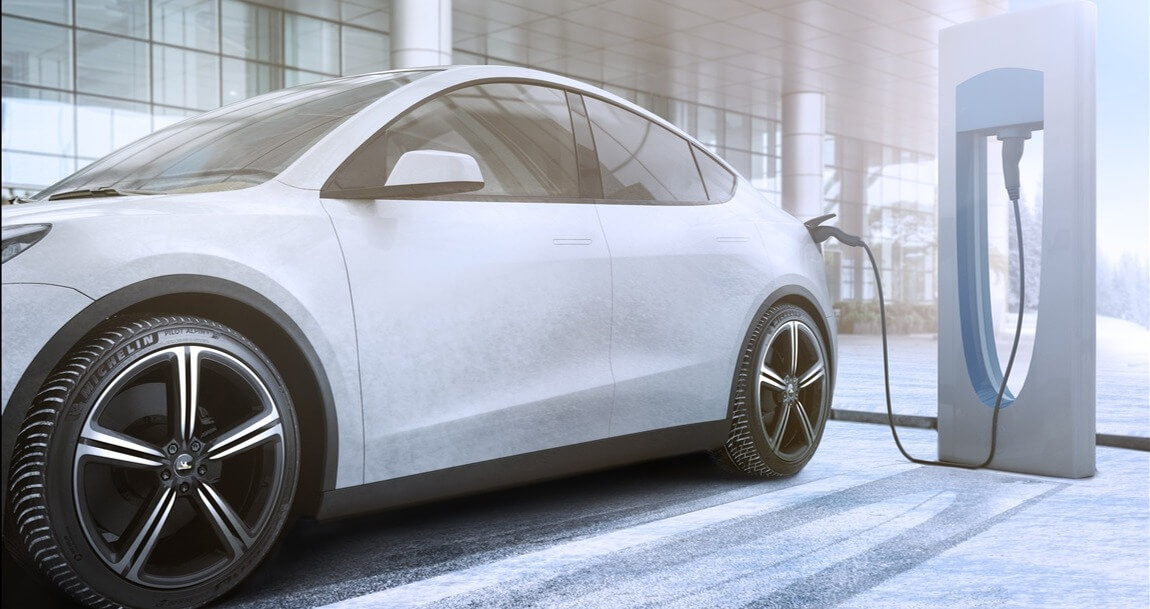Everything You Need to Know About the UAE Electric Vehicle Market: Size, Trends, and Opportunities
Understanding the Growth and Trends in the UAE Electric Vehicle Market

The UAE's automotive sector has long been synonymous with luxury and high-performance petrol vehicles, reflecting the nation's wealth and its significant oil reserves. However, in recent years, there has been a palpable shift towards more sustainable and environmentally friendly modes of transportation, spearheaded by advancements in electric vehicle (EV) technology and strong governmental support for sustainability initiatives. This whitepaper delves into the UAE's electric vehicle market, exploring its current size, emerging trends, and the factors driving its growth. Through detailed data analysis and insights, this paper aims to provide a thorough understanding of the UAE EV market, offering valuable information for stakeholders and decision-makers.
Overview of the Global EV Market
The global electric vehicle market has experienced substantial growth over the past decade, driven by increasing environmental concerns, technological advancements, and supportive government policies. According to the International Energy Agency (IEA) , global EV sales reached 6.6 million units in 2021, representing a nearly 100% increase compared to 2020. This growth is expected to continue, with projections indicating that EVs could account for over 30% of global vehicle sales by 2030.
UAE EV Market Size and Growth
Current Market Size
As of 2023, the UAE's electric vehicle market is relatively nascent but growing rapidly. According to the UAE Ministry of Energy and Infrastructure, there are approximately 8,000 electric vehicles registered in the country. This number, while still modest compared to the total number of vehicles, represents a significant increase from previous years and indicates a burgeoning interest in electric mobility.
Market Growth Projections
Several market research reports project robust growth for the UAE EV market over the next decade. For instance, Frost & Sullivan forecasts that the UAE's EV market will grow at a compound annual growth rate (CAGR) of 32.1% from 2021 to 2027. This growth is driven by various factors, including government incentives, increasing consumer awareness, and the expansion of charging infrastructure.
Key Drivers of EV Adoption in the UAE
Government Policies and Incentives
The UAE government has been proactive in promoting electric vehicles as part of its broader sustainability goals. Initiatives such as the “Dubai Green Mobility Strategy 2030” and the UAE Vision 2021 aim to reduce carbon emissions and encourage the adoption of clean energy solutions. Key incentives include:
Exemption from registration fees and road tolls: EV owners in the UAE benefit from reduced registration fees and exemptions from road tolls, making EV ownership more economically attractive.
Free parking: Various municipalities, including Dubai and Abu Dhabi, offer free parking for electric vehicles in designated areas.
Investment in charging infrastructure: The UAE has been investing heavily in expanding its EV charging network, with over 500 charging stations already operational across the country.
Environmental Awareness
Growing environmental consciousness among UAE residents is another significant driver of EV adoption. The adverse effects of climate change and air pollution have spurred interest in sustainable living practices, including the use of electric vehicles. Public awareness campaigns and educational initiatives have further amplified this shift in consumer behavior.
Technological Advancements
Advancements in EV technology, particularly in battery efficiency and driving range, have addressed many of the initial concerns associated with electric vehicles. Modern EVs offer competitive performance and range, making them viable alternatives to traditional petrol vehicles. For example, the Tesla Model S and the Nissan Leaf are popular models in the UAE, known for their impressive range and reliability.
Challenges Facing the UAE EV Market
High Initial Costs
One of the primary barriers to widespread EV adoption in the UAE is the high initial purchase cost. Although the total cost of ownership is lower over the long term due to reduced fuel and maintenance costs, the upfront price remains a deterrent for many potential buyers.
Limited Model Availability
While the variety of EV models available in the UAE has increased, the market is still relatively limited compared to more mature markets like Europe and North America. Expanding the range of available models, particularly in the affordable segment, is crucial for driving higher adoption rates.
Charging Infrastructure
Despite significant progress, the charging infrastructure in the UAE is still developing. Ensuring widespread and reliable access to charging stations, especially in residential areas and public places, is essential for supporting the growing EV population. The introduction of fast-charging stations that can provide an 80% charge in under 30 minutes is a positive step, but further expansion is needed.
Case Studies: Leading the Way
Dubai Electric Vehicle Infrastructure
Dubai has been at the forefront of promoting electric mobility in the UAE. The Dubai Electricity and Water Authority (DEWA) has implemented the "Green Charger" initiative, which aims to establish a comprehensive network of charging stations across the emirate. As of 2023, DEWA has installed over 300 charging stations, with plans to increase this number significantly in the coming years.
Abu Dhabi's Sustainability Drive
Abu Dhabi has also made significant strides in supporting electric vehicles. The Abu Dhabi Department of Energy (DoE) has launched various initiatives to encourage EV adoption, including subsidies for EV purchases and investments in charging infrastructure. The emirate aims to have 20% of its government fleet electric by 2030.
Consumer Preferences and Trends
Rising Demand for Luxury EVs
Given the UAE's affluent consumer base, there is a notable demand for luxury electric vehicles. Brands like Tesla, Porsche, and Audi have seen increasing interest in their high-end EV models. The Tesla Model S and Porsche Taycan are particularly popular among UAE consumers, reflecting a preference for premium vehicles with advanced features and superior performance.
Interest in Sustainable Mobility Solutions
Younger consumers in the UAE are particularly inclined towards sustainable and eco-friendly mobility solutions. This demographic shift is driving demand for electric vehicles, as younger buyers prioritize environmental impact and innovative technology over traditional performance metrics.
Market Opportunities and Future Outlook
Expansion of Charging Infrastructure
The continued expansion of the EV charging network is critical for the future growth of the UAE EV market. Public-private partnerships and investments in fast-charging technology will be key to addressing the infrastructure challenges and supporting the anticipated increase in EV adoption.
Development of Local Manufacturing
Encouraging local manufacturing of electric vehicles and components could significantly boost the UAE's EV market. Establishing local production facilities would reduce costs, create jobs, and enhance the overall sustainability of the automotive sector. Government support in the form of subsidies and incentives for manufacturers could accelerate this development.
Integration with Smart City Initiatives
The UAE's commitment to smart city initiatives presents a unique opportunity for integrating electric vehicles into the broader urban mobility ecosystem. Smart grids, connected infrastructure, and autonomous driving technology are areas where the UAE can lead, leveraging its technological capabilities and forward-thinking policies.
The UAE's electric vehicle market is poised for significant growth, driven by supportive government policies, increasing environmental awareness, and technological advancements. While challenges such as high initial costs and developing charging infrastructure remain, the overall outlook is positive. By addressing these challenges and capitalizing on market opportunities, the UAE can establish itself as a leader in electric mobility, contributing to a more sustainable and environmentally friendly future.
